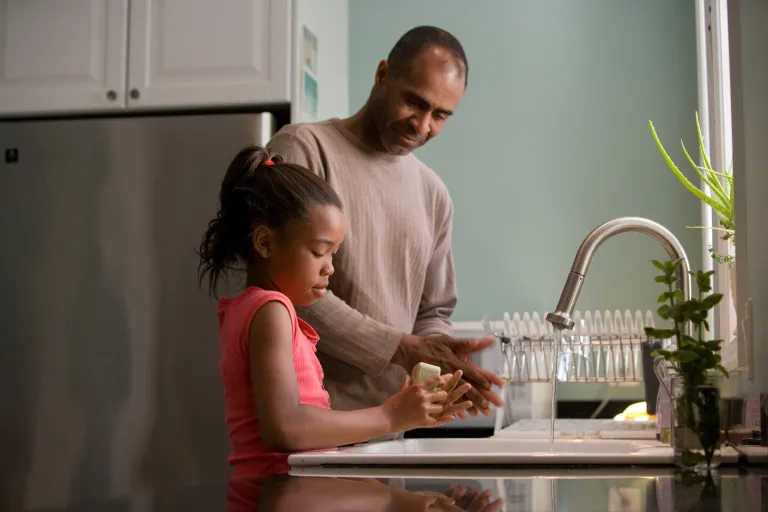
Journalist and artist Rosel Jackson Stern speaks to Holly Roberts, a relationship counsellor about the specific challenges that come up when Christmas and a cost-of-living crisis collide.
This Christmas feels bleak and I’m not the only one who feels this way. Speaking to Holly Roberts, a counsellor at Relate, it’s clear this Christmas is putting extra pressure on our wallets, mental health and general well-being. Over half (53%) of Brits are anticipating family rows this Christmas with the majority (73%) blaming the cost of living crisis. Rising electricity bills aren’t just squeezing household budgets but testing our relationships and quality of life too. Overall, a third of the 2033 UK adults we surveyed said they expect the cost-of-living crisis to have a negative impact on their relationships with loved ones this winter. This rose to almost half (47%) for Gen Z (16-24) and millennials (25-39).
You aren’t going through this alone
The cost-of-living crisis is caused by inflation but made worse by Brexit, wage stagnation, rising energy bills and the ongoing impacts of Covid-19. All of these things can be overwhelming to get your head around and yet loads of us are living with the realities of them. They are taxing our material and emotional realities too. Relate's recent survey on how the crisis is affecting Britain during the Christmas period, turning the heating on is the top expected source of conflict (20%), followed by how much to spend on gifts (18%) and the expense of electricity used for Christmas lights (15%).
As immediate as these tensions are in our lives, we can suffuse them by redirecting our frustration and anger into community efforts to build solidarity during the holidays. What local groups are lobbying for the change you’d like to see? How is your community helping people survive this time? Are there charities or mutual aid organisations you can volunteer for? There’s peace in knowing that the challenges we face aren’t really because our host will or won’t drive up the electricity bill, but rather because a fundamental human right is being denied us. That should make us angry. That should make us frustrated and there are constructive ways we can do our bit to support those around us.
Have honest conversations about money
As Christmas approaches, there’s a cultural expectation to buy gifts, go for expensive dinners and purchase over-priced hot chocolate at the Christmas market.
Until societal changes are made, we’re going to have to care for our relationships in new ways. Maybe you’ve always talked about money with friends and family but for many of us, it’s a subject as welcome as that rude uncle who gets too drunk on mulled wine and eggnog. To simply communicate is easier said than done but Holly recommends that you outline what your expectations are beforehand by asking simply that. This can be either in person or via text saying something along the lines of “Money’s tight at the moment but it’s important to me that you feel loved this season. What do you think about x,y or z?”
Another way to approach this conversation is turning the question back to your partner, friend or significant other. How is the cost-of-living crisis affecting them? How can you support each other through it? “A lot of my clients are talking about love languages at the moment and giving gifts is just one of them, Holly says, “most of us just want to feel cared for and there are creative ways to do that”. Consider devoting a certain amount of time with your loved one, giving them the result of your gifts, hobbies and interests.
Ask the question: “hey, I can’t afford presents this year but I want to make sure you feel loved and appreciated. How do you feel loved?" Another way to begin, particularly if this feels challenging, is to say: “I find this really hard to talk about”. That way you can’t chicken out and the person you're talking to can hopefully help you articulate what you’re trying to say.
Honour your boundaries more than your commitments
Combining family, loved ones and learning to say no can generate a whole lot of anxiety for us during the holidays. Silent, and not so silent, expectations to attend events with family and coworkers alike might be particularly challenging to our mental health.
Learning to say no to things we don’t want to do, no matter the consequence, can be a struggle no matter the time of year but the holidays have a bad habit of bringing this all to the fore. Holly recommends that you give yourself as much compassion as possible: ”If you feel you can’t say no, what agreements can you make with yourself to ease the pressure? For example, if you have to go to a Christmas gathering, can you make a deal with yourself to leave by a certain time?”
What’s clear from my conversation with Holly is that we are the best judges of what’s feasible for our mental health. Protecting your peace, even if that means disappointing others, is always worth it and we can accommodate ourselves in big and small ways.

Advent calendar
With all the busyness surrounding Christmas, we often don't get the chance to stop and take the time to really focus on enriching our romantic relationships.
That's why this year, we’ve created a relationship advent calendar that's delivered straight to your inbox to encourage you to find small moments with your loved ones this festive season.
How we can help
If you’re looking for support with your relationships, we can help. We offer a range of ways to speak with a trained relationship expert including ongoing counselling, 30 minute web and phone chats, and one session therapy.
Find out which service is right for you
How you can help
Have you found this advice helpful? Make a donation to help us reach more people and continue supporting the nation’s relationships:
Can't afford to donate? We understand. Instead, we ask that you leave us a 5 star review on Trustpilot.